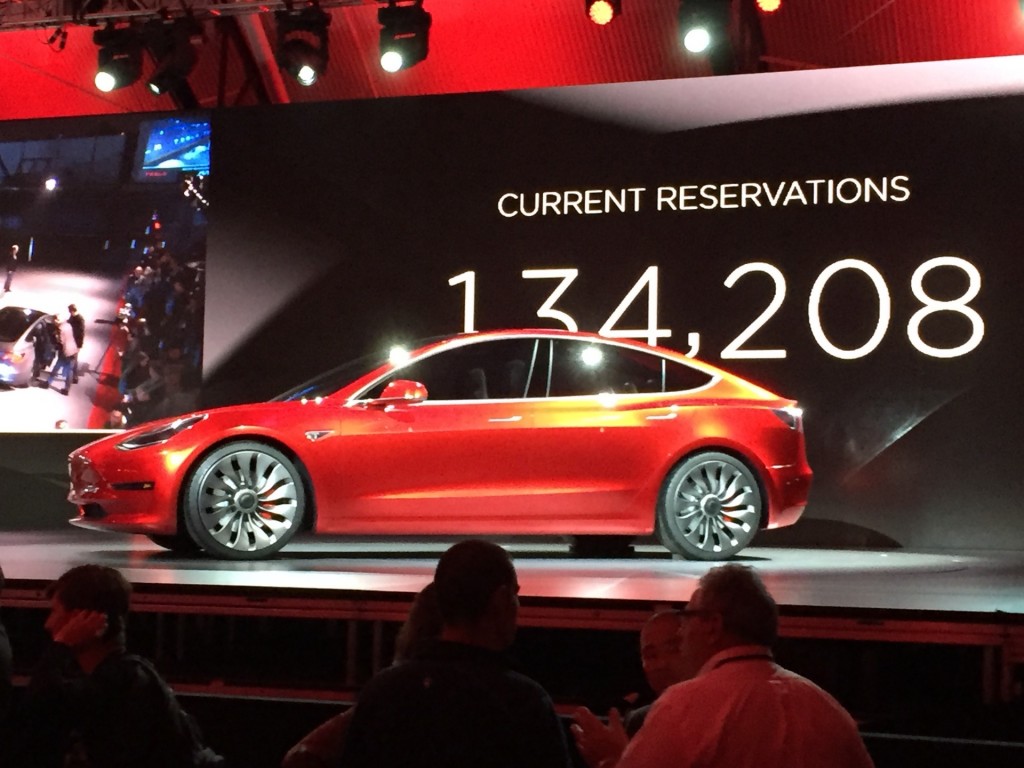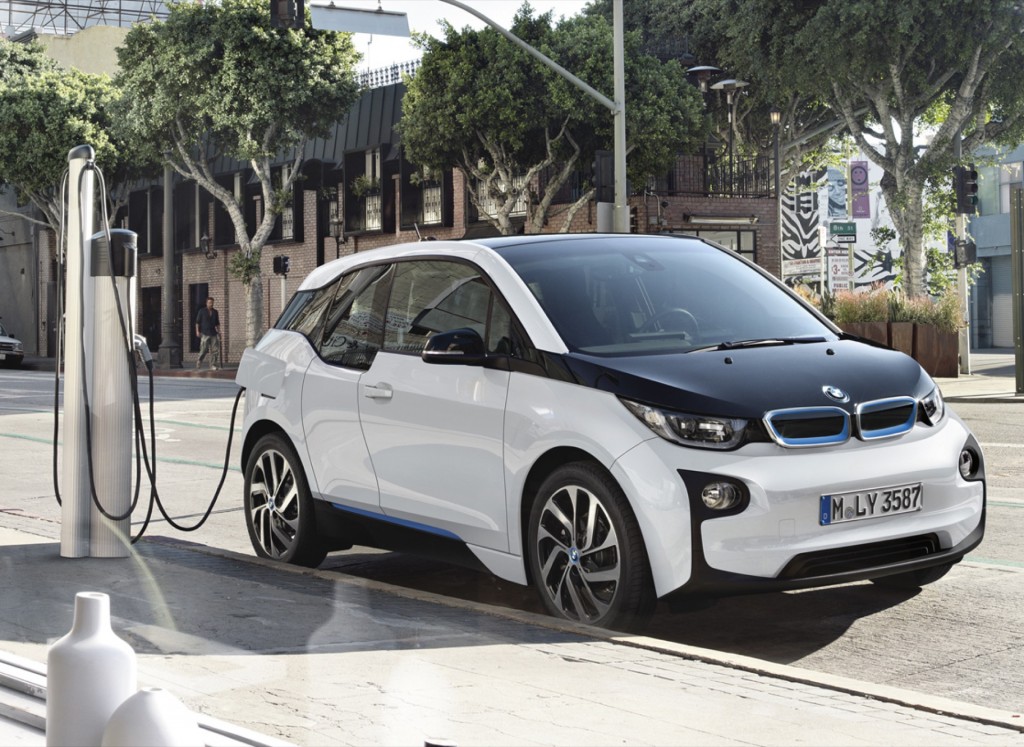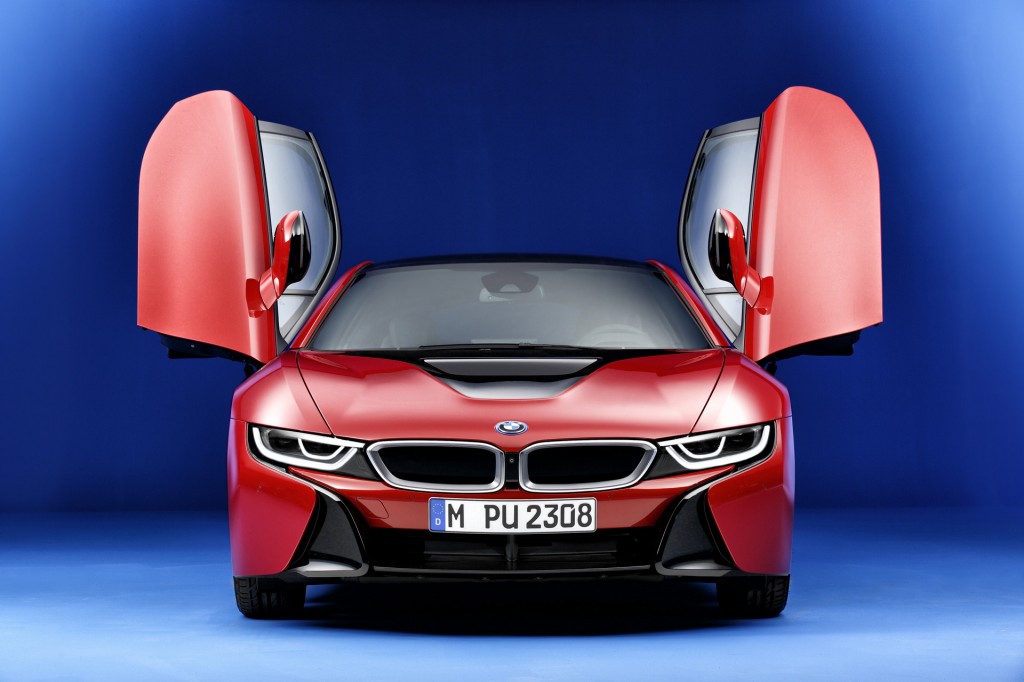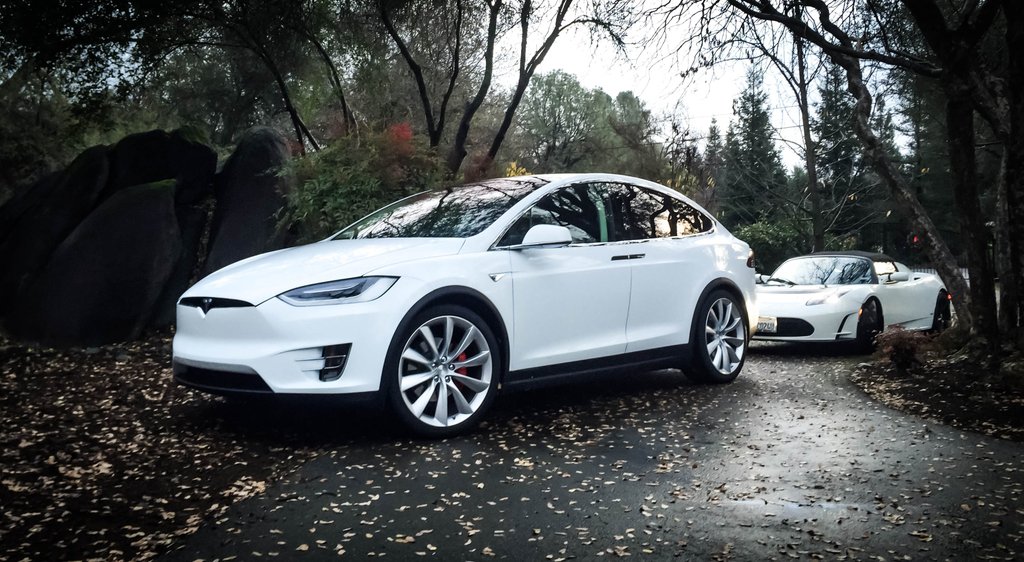For a decade now, Tesla Motors has been the "black swan" of the auto industry.
It's a California company startup, founded from scratch, using a new powertrain, that against all odds has sold more than 100,000 electric cars and created a brand known worldwide.
You can almost hear the grinding of teeth in the automaking capitals of Michigan and Germany from here.
DON'T MISS: Now, finally, the Germans are getting scared of Tesla?
It took the German luxury troika—Audi, BMW, and Mercedes-Benz—several years to realize that Tesla had lured away at least some of their buyers.
And Tesla chose not to make its electric cars small hatchbacks limited to city use: the Model S is an all-electric luxury car with sleek looks, a range of 200-plus miles, and a huge, jaw-dropping touchscreen display in the center of the dash.
Now all the Germans are planning Tesla-alikes: 200-plus-mile luxury electric vehicles, both sedans and SUVs, that will hit the market in 2018 and beyond.

Tesla Model 3 design prototype - reveal event - March 2016
Of the German luxury makes, BMW is by far the most ambitious and aggressive in electric cars.
Its first effort, the 2014 BMW i3, was a technically advanced electric hatchback that remains the most energy-efficient car on sale in the U.S. today.
Newly updated for 2017, with a higher-capacity battery giving a range of roughly 114 miles, the i3's carbon fiber-reinforced plastic body and aluminum running gear show how technology can radically improve efficiency.
CHECK OUT: How Audi, BMW & Mercedes Plan To Compete With Tesla--And Why (Oct 2014)
And yet, globally, Tesla has sold more plug-in electric cars than BMW has.
And Tesla Motors claims about 400,000 people have put down a refundable $1,000 deposit for its next car, the Model 3, which won't be delivered for two years or perhaps much more.
Now, advocate and longtime BMW electric-car owner Tom Moloughney has published some thoughts on the Model 3 phenomenon and how it affects his beloved Bavarian carmaker.

2017 BMW i3
In a two-part article, Moloughney lays out Tesla's achievements to date (Part I), and then looks at what BMW needs to do to compete effectively with the Silicon Valley startup (Part II).
He notes that many of those Model 3 depositors viewed the car much more like the latest and coolest piece of consumer electronics than simply a motor vehicle.
In other words, they may not necessarily have been all that much like Tesla's buyers to date.
Moloughney suggests that BMW is by far the best-positioned of the three Germany luxury brands to compete with Tesla, given its huge investments in advanced technology and its demonstrated efficiency results in the i3.
But, he says, BMW must accelerate its programs and start developing mainstream electric vehicles of a size and performance that can effectively supplant its current (and highly profitable) lineup of gasoline and diesel models.

2016 BMW i8 Protonic Red Edition
A funny-looking subcompact electric hatchback and a very pricey (if stunning) two-seat gullwing plug-in hybrid coupe are far from those vehicles.
Moloughney writes that the upcoming BMW i5, which he expects will launch during 2019, will use batteries of greater energy density than anything now on the market.
BMW is waiting for those, he suggests, while Tesla is forging ahead using cheaper cells it plans to manufacture in its gigafactory outside Reno, Nevada.
He notes that the company will offer longer-range plug-in hybrid powertrains across its entire gasoline lineup by 2020 as well, previewed 18 months ago by the Power eDrive system.
He also suggests that an electric Mini Rocketman minicar in 2018 and an enlarged second-generation i3 by 2020 or so will give BMW a much stronger lineup with which to counter Tesla.

2016 Tesla Model X with 2011 Tesla Roadster Sport, photographed by owner Bonnie Norman
Moloughney's pair of articles are long, but the second part especially is likely to provoke much discussion about how (and whether) BMW can compete.
Regardless of how his predictions and prescriptions pan out, the German makers' responses to the completely unanticipated Tesla phenomenon provide one of the great and ongoing stories of our industry.
_______________________________________













